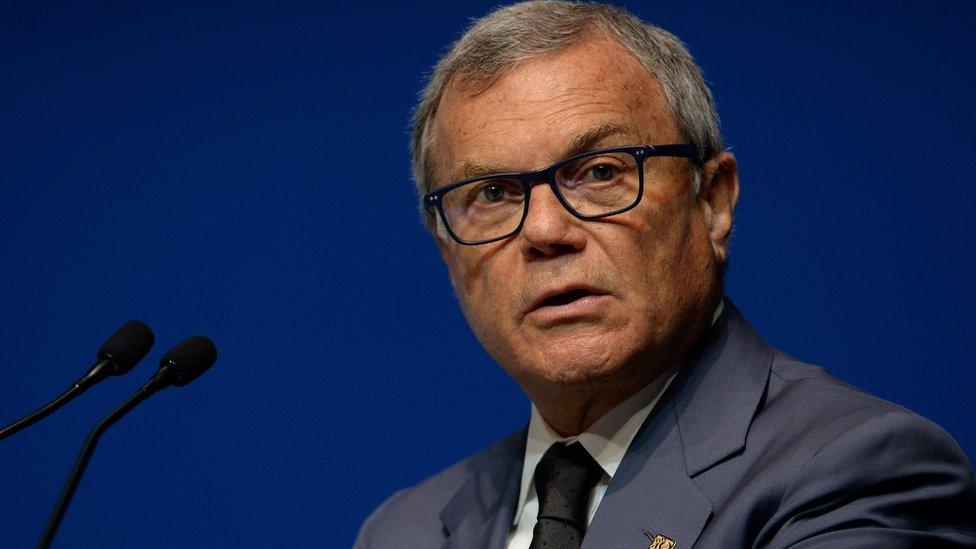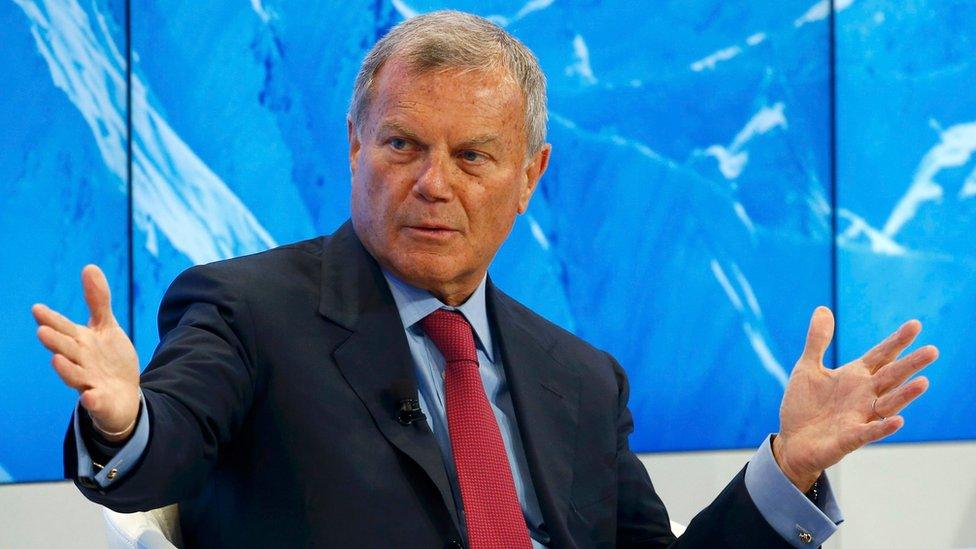WPP boss £48m pay voted against by a fifth of investors
- Published

More than one in five shareholders at advertising giant WPP have voted against chief executive Sir Martin Sorrell's £48m pay package.
The move makes it the seventh year in a row that more than 20% failed to endorse the boss's pay.
Investors also raised concerns over succession plans at the business when Sir Martin, 72, finally retires.
Last year 34% of investors refused to back his pay deal of £70.4m - the biggest in UK corporate history.
The vote took place at the company's annual general meeting on Wednesday and saw 21.3% of shareholders either vote against his pay or abstain.
WPP has attempted to reign in the vast sums paid to Sir Martin since 2012, when he faced a 60% revolt by investors.
Since then, he has been paid more than £210m.
Investors said they also wanted the board to give clearer indications over the company's future.
Major investment funds, including Standard Life Investments, Royal London Asset Management and Hermes asked chairman, Roberto Quarta, for clarity.
Deborah Gilshan, stewardship and governance director at Standard Life Investments, which has a 1.5% stake in WPP, said: "[Succession] remains the key governance risk to our long term investment in WPP.
"Unusually, the CEO's service contract may be terminated by either the company or Sir Martin without any notice.
"Given this, we suggest the board consider what lead time would be required to ensure an orderly succession and discuss this with Sir Martin."
Executive pay "excessive"
Mr Quarta insisted succession planning was well underway with key talent across the WPP group meeting the board.
He added that a "constantly refined list" of external candidates was also available.
Sir Martin has constantly defended his high pay, pointing out that WPP, which he essentially founded in 1985, continues to grow from strength to strength.
Royal London Asset Management (RLAM), which holds shares worth £106m, remained unconvinced.
Ashley Hamilton Claxton of RLAM, explained why the organisation voted against the pay package.
She said: "Executive pay at WPP continues to look excessive.
"Whilst we acknowledge that the reduction in the total long term bonuses and incentives available to executives under the new remuneration policy is a step in the right direction, the sheer scale of these remains exceptionally high, at over nine times the salary for the CEO."
- Published3 March 2017
